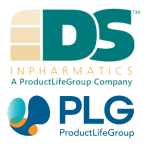Any person engaged in a regulatory affairs CMC role should possess a robust combination of strategic experience and knowledge to ensure that CMC practices are undertaken in line with the requirements of regulatory bodies, such as the EMA (European Medicines Agency) and FDA (US Food and Drug Administration).
Effective regulatory CMC project management is essential in ensuring that the vital drugs and treatments that are being manufactured are safe, effective and of sufficiently high quality for patient use.

Image Credit: DSI, a PLG Company
CMC roles exist in each stage of the drug lifecycle, from development and manufacturing through to licensing and marketing. At each stage, CMC professionals provide the key knowledge, understanding, and interpretation of regulations that ensure the drug has the best chance of approval.
Regulatory work in CMC involves authoring, compiling and checking regulatory submissions and interacting directly with staff at regulatory bodies in line with the overall CMC strategy.
Regulatory submissions for a medicinal drug product will typically involve submitting documentation and data to a regulatory authority for review. This submission will generally include an application (NDA/BLA) for authorization, or it may be in response to a specific question raised during the review of the healthcare product.
The outcome of the submission will determine whether or not a drug can move beyond clinical trials into commercialization.
The complexities of regulatory submission processes have long posed a challenge for smaller or emerging biotechs and - more so recently. Submission requirements have become increasingly strict with applications requiring a significant amount of documentation and data.
There are a number of common types of regulatory submissions. These include:
- Clinical trial applications (INDs, CTAs)
- CMC Information Amendments
- Marketing applications (NDAs, BLAs, MAAs)
- Applications for modifications of submissions
- Availing contract services
- Responses to agency inquiries during the review
- Post-approval commitment submissions
Submissions may be made electronically, in hard copy, or both, though agencies are increasingly encouraging the use of the eCTD format. The level of detail and amount of information required varies according to the type of submission, but in every case, comprehensive, accurate submissions maximize the likelihood of a favorable regulatory review.
Regulatory submission challenges
A number of common challenges may hinder the regulatory submission process.
Country-specific requirements
It can be challenging to navigate and account for different country-specific stipulations for submissions which may be quite different; for example, the United States and Europe. Manufacturers must monitor global regulations for changes or differences that may impact submission requirements.
Lack of regulatory strategies
Manufacturers must develop and define an appropriate strategy from the offset, conducting pre-submission meetings with agencies and seeking guidance and advice on required data. A robust regulatory strategy will be built on factors such as the requirements of the target market, the competitive landscape, an unmet medical need, potential opportunities for first-in-market and initial target indication.
Inconsistent data
The FDA and other key agencies have pointed out that companies regularly fail to describe their product context adequately. A further issue arises where multiple subject matter experts author different sections of the submission, resulting in an inconsistent storyline.
Limited submission experience
Companies routinely face difficulties when hiring and retaining experts who are able to manage submissions. Business strategy changes, including expedition or new combination products, may also lead to skills gaps in the submission teams which must be accounted for.
Regulatory submissions best practices
It is important to provide comprehensive information on the CMC section of an IND, particularly in the case of late-phase clinical trials. It is advisable to ensure detailed and well-audited applications, supplements and amendments by collecting comprehensive data throughout the entire development process.
It is also essential to develop a refined regulatory strategy with defined approaches to formulation development in conjunction with quality-based manufacturing. Stringent quality assurance and regulatory compliance frameworks for drugs and biologics should be implemented early on.
It is also advisable to:
- Doublecheck regulatory requirements for each subsequent submission – these may evolve over time.
- Define a regulatory strategy with approval as the key goal, conducting pre-submission meetings with agencies for guidance and feedback.
- Create a comprehensive and cohesive storyline for the product that is backed up by the data.
- Decide on an approach to manage the multitude of documents needed in advance, using predefined templates for consistency.
A number of other factors can be useful in streamlining the submission process:
- Consult with experienced SMEs and/or regulatory experts in regard to product data evaluation.
- Build clarity, precision and consistency across all documents that will be included in the applications, ensuring that it is in line with the overall regulatory strategy.
Example types of submissions: FDA
New Drug Application submission (NDA) 505(b)(1)
Where New Active Ingredients (APIs) have not been approved prior to submission, there is a need for extensive clinical and nonclinical studies to verify and demonstrate a product's safety and efficacy.
It is advisable to work to optimize the organization, quality and comprehensiveness of NDA applications. These should include all data and interpretation of compliance data while meeting audit requirements. CTD applications must also meet stipulations.
New Drug Application submission (NDA) 505(b)(2)
A product categorized as NDA505(b)(2) contains similar active ingredients to an approved drug. In this case, required CMC information is similar to that of NDA505(b)(1), but the data will also partially depend on the FDA's safety and efficacy findings around a previously approved product.
In-depth knowledge of filing requirements coupled with the utilization of suitable drug development approaches can help a case.
This submission type is also relevant for drugs with new indications, changes in dosage form, strength, dosing regimen, formulation, or route of administration. It may also be used with new combination products or Prodrugs of an existing drug.
In some instances, this submission type may also be used with drugs featuring new active ingredients where the FDA has given express permission to rely on data that has not been developed by the applicant.
Biologic License Application submission (BLA)
BLAs are used for biological products, while NDAs are used for small molecule drugs. BLAs must incorporate the full range of information about the product obtained during the development process.
The submission must successfully demonstrate the biologic's potency, safety and purity. It is important to include sufficient data in the application to ensure approval, for example, synthesis data and interpretation. Compliance with regulations and FDA audit requirements for biologics should be focused on, but it also is important to ensure that eCTD submissions meet specifications. The BLA is regulated under 21 CFR 600–680.
Abbreviated New Drug Application submissions (ANDA) 505(j)
When working with these types of submissions, it is advisable to begin by collating all relevant ANDA information necessary for a comprehensive application. Adequate data should be compiled on how the product performs in the same way as the innovator drug and supplemental details should be provided on other factors such as drug chemistry, manufacturing and controls.
Complex generic product submissions
Complex generic products are identical to a brand name drug, but these products will feature a new formulation, complex active ingredient, complex route of delivery, or new drug-device combinations. Application requirements complex generic products are identical to those of ANDA submissions.
Submission project management
A competent and experienced project manager can be the key difference between a successful or unsuccessful regulatory submission.
DSI offers a range of services and expertise in regard to regulatory submissions, offering a number of key advantages.
The company has a wide range of regulatory submission experience and broad knowledge of Agency regulations and expectations based on first-hand experience. DSI's project managers will liaise with FDA project managers and reviewers on a daily basis, acting as the primary point of contact.
DSI's project managers can also help companies develop a robust regulatory strategy. Regulatory and product guidance is available alongside project coordination services. DSI can provide comprehensive guidance on optimal practices for efficient and compliant applications.
A project manager from DSI can improve document control by coordinating submission authoring, reviews, strategy discussions and publishing and lifecycle application maintenance activities. This ensures cohesive and consistent product storylines are provided to reviewers.
Finally, DSI is able to support the whole submission process, accompanying sponsors into agency meetings (FDA and EMA scientific meetings) and supporting them during teleconferences.
Acknowledgements
Produced from materials originally authored by Meranda Parascandola at Design Space InPharmatics.
About DS InPharmatics 
DS InPharmatics (DSI) provides regulatory, technical, and project management consulting services to healthcare product companies that manufacture and/or market pharmaceuticals, biopharmaceuticals, and cellular and gene therapy products.
Since 2007 we have provided our clients with innovative strategies and exceptional quality work products intended to enhance product development, approval, and marketing presence. Whether advocating CMC strategy, directing CMC operations or developing CMC submission content that represent the best interests of emerging biotech, we focus on the critical CMC issues and build programs that enhance development.
In April 2021 we were thrilled to announce that DSI has just become part of ProductLife Group.
French-headquartered ProductLife Group (PLG) is well-known in the Life Sciences market. It has a track record of successfully managing global outsourcing programs and insourcing services for its international client base. The company is on a mission to help transform human health outcomes by optimizing regulatory affairs, safety & vigilance, and quality compliance for life sciences organizations worldwide.
The fit between our two organizations could not be more perfect. We will complement PLG's growing biotech services portfolio. US biotech sponsors recognize DSI as a leader in consulting for go-to-market strategies and RA pre-market consulting. At the same time, PLG has a strong reputation for managing end-to-end outsourcing of regulatory affairs and pharmacovigilance activities worldwide.
Our merger with PLG will harness our combined strengths, offering our clients on both sides of the Atlantic support with their developed drugs approvals and post-approvals compliance, plus advisory services on the best market strategies to deliver a rapid ROI on their development. Together we will offer our clients increased pharmacovigilance capabilities - including a QPPV; pharmacovigilance consulting; and a fully validated safety database - as well as complementary toxicology-related services; RIM/electronic document management services; and support for medical device regulatory requirements.
We see enormous potential in this new chapter for DSI and you, our clients. As a PLG company, we have the opportunity to become part of a global force in life sciences regulatory and compliance solutions and services, and we're incredibly excited to add our momentum to that effort.
Sponsored Content Policy: News-Medical.net publishes articles and related content that may be derived from sources where we have existing commercial relationships, provided such content adds value to the core editorial ethos of News-Medical.Net which is to educate and inform site visitors interested in medical research, science, medical devices and treatments.